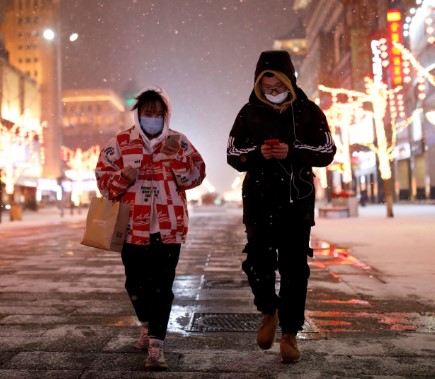As the market closed on Monday, the stocks had taken a sharp decline. Not since December 2018 had all three benchmarks fell by more than 3% on the same day. The S&P 500 was down 111.85, the Dow was down 1031.40, and the Nasdaq was down 355.31. “Monday’s downturn has wiped out this year’s gains for the Dow (now -2.02%) and the S&P 500 (now -0.15%).”[1]
The 11 sectors of the S&P 500 all suffered declines with energy being the hardest hit at a decrease of 4.74 percent. The last time energy took this large of a decline was 2015. The next two hardest hit sectors were information technology and consumer discretionary at decreases of 4.19 and 3.53 percent, respectively. Consumer discretionary refers to good and services that are non-essential to consumers like apparel, entertainment and automobiles.
The effect of the market slowdown is a hard figure to estimate. Global companies are preparing for the impact of the current coronavirus, COVID-19, as it looms over the economy. Companies have begun to speak out about their own operations.
- Apple – The impact to Apple is twofold. “‘Work is starting to resume around the country, but we are experiencing a slower return to normal conditions than we had anticipated,’ the company said in a statement on Monday. Apple generates about 15% of its revenue from China, and many of its products are manufactured there.”[2] For U.S. consumers, the slowdown in production would result in a shortage of iPhones among other products.
- Fresh Del Monte Produce – “CEO Mohammad Abu-Ghazaleh said port closures in China led to a slowdown in trucking and goods were left stacked up at ports over the extended Lunar New Year shutdown.”[3] The impact of the slowdown move past the goods themselves effecting both transportation and export figures.
- Mastercard – While revenues are anticipated to grow 9-10 percent in Q1, this is 2-3 percent less than expected from the forecast in the 2019 earnings release. Mastercard cites two of the reasons as less cross-border travel and e-commerce.
- United Airlines – The airline is seeing almost a 100 percent decline in travel to China and another 75 percent decline in travel for other trans-Pacific routes. On Monday, the company also withdrew its full year 2020 guidance referring to the uncertainty of the pandemic.
- Walmart – The largest U.S. retailer is not factoring the virus into its 2020 forecast, but executives are bracing for impacts in both the first and second quarter. “In the U.S., roughly two-thirds of Walmart’s merchandise is made here, while the rest of the goods are sourced from several other countries, including China.”[4]
- Walt Disney Company – It currently has closed its Shanghai and Hong Kong parks, and if left closed, could potentially reduce Q1 operating income by $175 million.[5]
It is too early to make accurate predictions about how the coronavirus will impact the global market, but history has shown the correlation between economic health and pandemics. Economies slow as viruses and concerns spread. One serious outlier is that people who have the coronavirus may not show symptoms. The virus, COVID-19 has already resulted in more deaths than SARS (severe acute respiratory syndrome) and MERS (Middle East respiratory syndrome) combined. Both SARS and MERS are versions of a coronavirus. “It makes people sick, but not in predictable, uniquely identifiable ways. Last week, 14 Americans tested positive on a cruise ship in Japan despite feeling fine – the new virus may be most dangerous because, it seems, it may sometimes cause no symptoms at all.”[6] As the S&P continues to decline, analysts and consumers alike wait anxiously to see what the next breaking news will say.
[1] https://www.marketwatch.com/story/the-dow-is-off-by-more-than-a-1000-points-and-heading-for-its-second-worst-point-drop-in-its-history-heres-how-the-stock-market-tends-to-perform-afterward-2020-02-24
[2] https://www.marketwatch.com/story/what-apple-walmart-and-other-us-companies-are-saying-about-the-coronavirus-2020-02-18
[3] https://www.marketwatch.com/story/what-apple-walmart-and-other-us-companies-are-saying-about-the-coronavirus-2020-02-18
[4] https://www.usatoday.com/story/money/2020/02/18/walmart-says-holiday-sales-were-slower-than-expected/4792467002/
[5] https://www.marketwatch.com/story/what-apple-walmart-and-other-us-companies-are-saying-about-the-coronavirus-2020-02-18
[6] https://www.theatlantic.com/health/archive/2020/02/covid-vaccine/607000/




